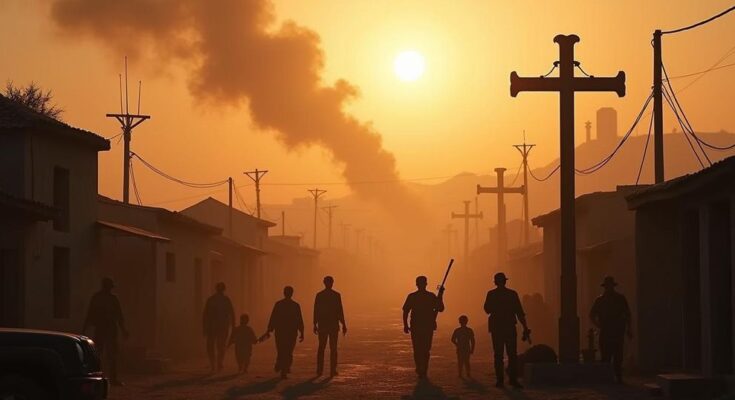As Israel initiates a ground invasion of southern Lebanon, residents of Ain Ebel, a Christian village, are compelled to evacuate under threat of violence. The Israeli military has warned locals to flee, while many choose to seek refuge at a nearby monastery in Rmeish. The village has a history of conflict, heightening fears among residents as they navigate their next steps amidst the chaos.
In a distressing turn of events, the Christian village of Ain Ebel in southern Lebanon has come under threat following an Israeli military incursion. As the Israeli ground invasion commenced, the military alerted the residents of Ain Ebel, warning them to evacuate within a mere 45 minutes, citing imminent danger to their lives. Despite assurances from village leader Rakash Ashlar that there were no Hezbollah elements in the area, the warning issued by an Israeli officer remained compelling, leading many to flee. The region, while dominated by Hezbollah influence, is home to diverse communities, including Christians, Druze, and Sunni Muslims. With memories of past conflicts haunting the villagers—particularly the siege in 2006 when they lacked food for weeks—they made the difficult choice to either remain, head to Beirut, or seek refuge in the nearby village of Rmeish, which had not faced evacuation orders. The Lady of the Annunciation Monastery in Rmeish provided sanctuary for many fleeing Ain Ebel, with local priest Najib al-Amil noting that hundreds found shelter there. Some evacuees were later transferred to Beirut by the Lebanese Army and the Red Cross, while others chose to stay overnight, anxious about the risks of crossing back amid the conflict.
The situation in Ain Ebel reflects the ongoing tensions and conflicts in southern Lebanon, particularly the interplay between various religious communities and the influence of Hezbollah. The area has a history of strife, notably during the 2006 conflict between Israel and Hezbollah, which left deep scars on the local population. The current violence has once again placed vulnerable communities in peril, forcing them to navigate decisions that could affect their safety and well-being. The role of nearby sanctuaries, like the monastery in Rmeish, highlights the efforts of local leaders to provide refuge amid chaos.
In summary, the evacuation of Ain Ebel underscores the volatile situation in southern Lebanon as Israel conducts military operations in the region. The complex dynamics involving Hezbollah and various local communities contribute to the precariousness of this scenario. With historical precedents of conflict, the residents of Ain Ebel are faced with heart-wrenching choices, seeking safety while simultaneously grappling with the impact of an intensified military presence and communal divisions. The urgency of their evacuation highlights the dire state of affairs for many in the region.
Original Source: www.nytimes.com




